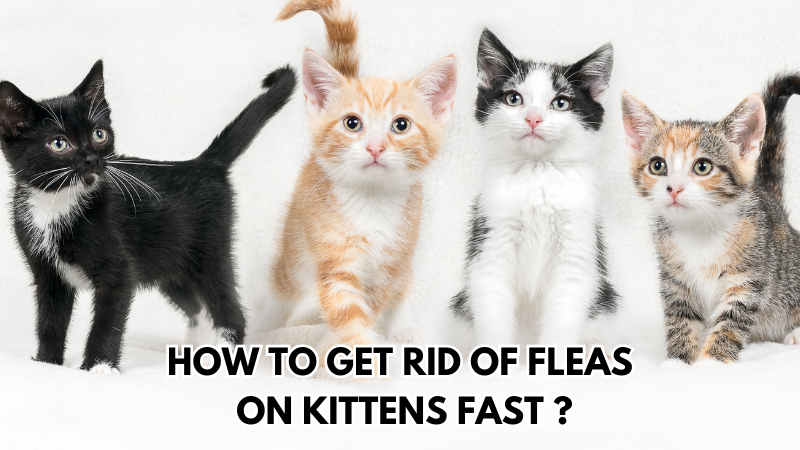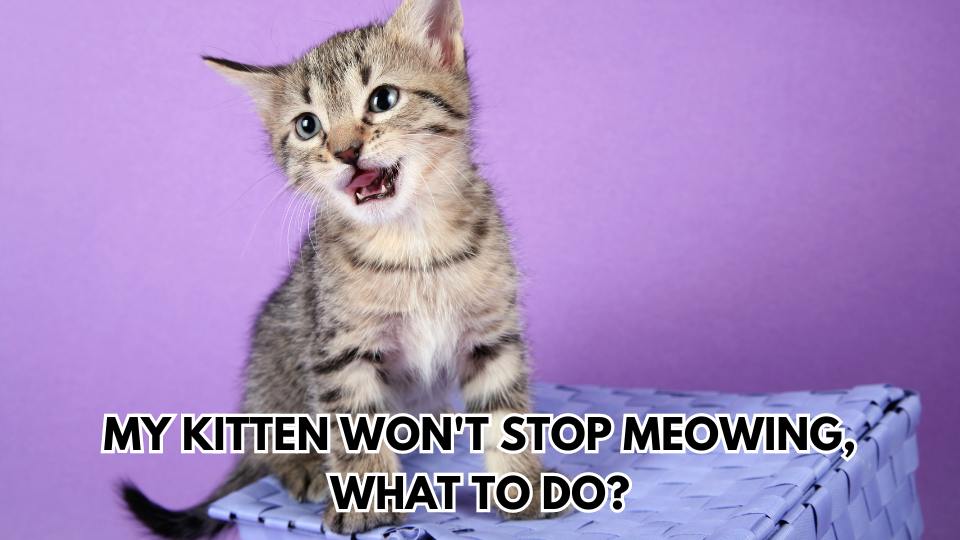Ever find yourself relaxing on the couch, minding your own business, when suddenly—BAM!—your kitten pounces on you like you’re its favorite prey? How to stop my kitten from pouncing on me?
If you’re dealing with a kitten that sees you as a target for surprise attacks, you’re not alone. Let’s look into why your kitten is doing this and, more importantly, how to get them to stop.
- Why Does My Kitten Pounce on Me?
- How to Get Your Kitten to Stop Pouncing on You
- What If My Kitten Still Won’t Stop Pouncing?
- Bonus Tip
Understanding the Pouncing Behavior
First, let’s get one thing straight: your kitten isn’t doing this to be mean.
Pouncing is natural for cats, especially for kittens. They’re hardwired to practice hunting, and you, unfortunately, make for a convenient practice dummy.
Kittens pounce as part of their play, learning how to stalk, chase, and capture prey.
According to Dr. Wailani Sung from vetstreet, since they cannot go out and hunt, it may redirect its aggressive behavior toward the nearest living thing, which in a household is often the owner.
While this behavior is normal, it’s not something you want to encourage.
If you don’t stop it now, your kitten could grow up thinking it’s okay to treat you like a chew toy, which can lead to more serious aggression issues down the road.
Why Does My Kitten Pounce on Me?
Your kitten’s pouncing habit likely stems from a few key factors:
Natural Instincts
Kittens are born hunters. Pouncing is a way to practice their hunting skills, even if it’s on you.
Boredom
If your kitten isn’t getting enough stimulation, they might see you as the most interesting thing in the room.
Attention-Seeking
Sometimes, your kitten might pounce on you just to get your attention. If it works, they’ll keep doing it.
Understanding why your kitten pounces is the first step in figuring out how to stop it.

How to Get Your Kitten to Stop Pouncing on You
Now that you know why your kitten is doing this, let’s look at some practical tips to curb the behavior.
1. Provide Plenty of Playtime
Your kitten needs an outlet for all that energy. If they’re pouncing on you, it might be a sign that they’re not getting enough playtime.
According to petmd, playtime during the day will help them use energy and to provide adequate mental stimulation.
Invest in some interactive toys like feather wands, laser pointers, or even some good old-fashioned string.
The key is to engage them in activities that mimic the hunt—chasing, pouncing, and batting.
Tip: Schedule at least two play sessions a day, lasting around 15-20 minutes each. This will help burn off some of that excess energy and satisfy their hunting instincts.
2. Redirect the Behavior
When your kitten pounces on you, immediately redirect their attention to a toy.
Keep a small toy or a piece of string nearby at all times. As soon as they start to pounce, toss the toy or drag the string away from you to divert their attention.
The more you consistently redirect, the more your kitten will learn that toys—not you—are for pouncing.
3. Don’t Encourage Rough Play
It can be tempting to play rough with your kitten, especially when they’re so small and cute.
But this can backfire. Rough play can teach your kitten that biting and pouncing on people is okay.
Stick to gentle play and let toys take the brunt of your kitten’s attacks.
Remember, your hands and feet are off-limits. If your kitten starts to pounce on you during play, stop immediately and redirect to a toy.
4. Use Positive Reinforcement
Reward your kitten when they play nicely or when they stop pouncing on you.
This could be with treats, affection, or extra playtime. Positive reinforcement helps your kitten learn what behavior is acceptable. Keep treats handy during playtime to reward good behavior instantly.
5. Avoid Punishment
Punishing your kitten for pouncing, like yelling or using a spray bottle, can backfire.
It might make them fearful or even more aggressive. Instead, focus on redirecting the behavior and using positive reinforcement.
Pro tip: A firm “no” or clapping your hands can sometimes be enough to startle your kitten and stop the behavior in the moment, but always follow up with redirection to a toy.

6. Provide Mental Stimulation
Kittens are curious creatures. If they’re not mentally stimulated, they might start seeing you as their new plaything.
Puzzle feeders, interactive toys, and even safe spaces for them to explore can keep their minds occupied and away from pouncing on you. Don’t forget to rotate their toys regularly so they don’t get bored with the same old ones.
7. Give Them Space
Sometimes, your kitten might pounce because they’re overstimulated or stressed.
Make sure they have a quiet space to retreat to when they need a break. A cozy cat bed or a quiet room can work wonders in helping them calm down.
What If My Kitten Still Won’t Stop Pouncing?
If you’ve tried everything and your kitten is still pouncing on you, it might be time to consult with your vet or a professional cat behaviorist.
Sometimes, persistent aggressive behavior can be a sign of underlying health issues or a need for more specialized training.
According to Catster, veterinarians can also prescribe medication to help reduce feline aggression, and pheromone products may also bring peace to some situations.
Bonus Tip: Use Catnip Strategically
Catnip can be a great tool to help tire out your kitten.
A little sprinkle of catnip on their favorite toy can make playtime more enticing and help burn off some of that energy. Just be careful not to overdo it, as too much catnip can make some cats overly excited or, in rare cases, aggressive.
Read: When Can I Start Giving My Kitten Treats ?
Getting your kitten to stop pouncing on you can be challenging, but with patience and consistency, you can teach them that you’re not their personal prey.
Remember, kittens are like toddlers—they need guidance, boundaries, and lots of love.
By providing them with plenty of playtime, mental stimulation, and positive reinforcement, you’ll be well on your way to curbing this behavior.
And who knows? You might just end up with a well-behaved cat who’s more interested in snuggling than pouncing. Now that’s a win-win! Good luck!***
Watch Videos about Cat & Kitten Care on Youtube @naowthecat